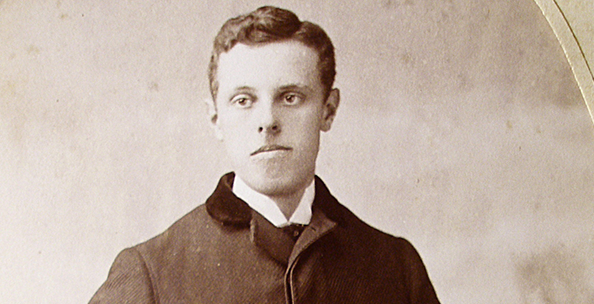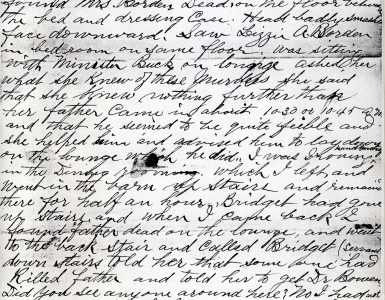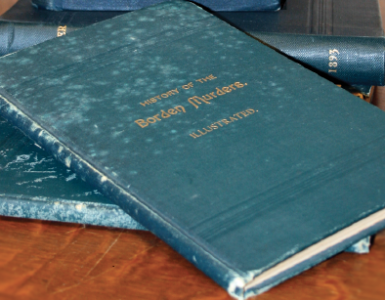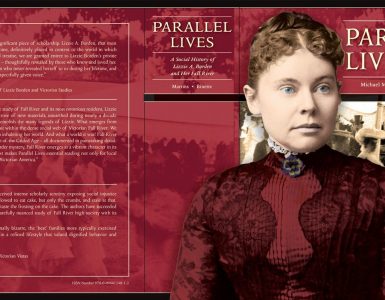by Kat Koorey
First published in January/February, 2008, Volume 5, Issue 1, The Hatchet: Journal of Lizzie Borden Studies.
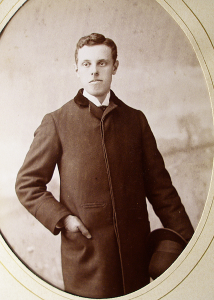 Orrin Augustus Gardner was born in Swansea, Massachusetts, on 21 July 1867, the eldest of four children. His brothers were Frank Henry (1869) and William Wilson (1875). The youngest sibling, Mabel, and only sister, died within seventeen days of her birth (1876). Their parents were Henry A. Gardner (1835) and Caroline Cole Mason (1839), who married in 1864. Caroline’s sister, Ann Frances Mason (1835), married William Bradford Morse (1829) and lived in Excelsior, Minnesota. They raised six children, who were all first cousins to the Gardner boys (through their mother), and also to Emma and Lizzie Borden (through their father, who was Sarah Borden’s brother).
Orrin Augustus Gardner was born in Swansea, Massachusetts, on 21 July 1867, the eldest of four children. His brothers were Frank Henry (1869) and William Wilson (1875). The youngest sibling, Mabel, and only sister, died within seventeen days of her birth (1876). Their parents were Henry A. Gardner (1835) and Caroline Cole Mason (1839), who married in 1864. Caroline’s sister, Ann Frances Mason (1835), married William Bradford Morse (1829) and lived in Excelsior, Minnesota. They raised six children, who were all first cousins to the Gardner boys (through their mother), and also to Emma and Lizzie Borden (through their father, who was Sarah Borden’s brother).
Andrew Borden and his partner William Almy bought land in Swansea from the Gardner family. The Gardner boys and the Borden girls visited each other when Emma and Lizzie summered in Swansea, a tradition that continued into adulthood. The Bordens and Gardners were related distantly by blood, but more closely by marriage. Orrin, Frank, and William would all benefit from Emma Borden’s will as Emma considered them her family. She had arranged with Caroline Gardner to administer to her remains after her death—an intimate request—that was honored by Orrin because Caroline predeceased Emma.
Orrin Gardner graduated from the Warren, Rhode Island, high school, as did his brothers after him. The determination of the state line between Massachusetts and Rhode Island was rather fickle during those times, so the boundary towns of Warren, Swansea, and Touisset were somewhat confused in the records. Orrin went on to further study at the Bryant & Stratton Commercial Business College, and then attended the Rhode Island State Normal School, in preparation for a career in teaching. Orrin eventually taught in Swansea, Tiverton, and Fall River.
The late historian of Swansea, Helen Pierce, described her memories of the little two-room school on blocks in a field. When there was heavy snow, a farmer would take a triangle of wood filled with stones to weight it, and with a horse, would drag it behind, making a path for the children to get to school. When the new school was built in 1908, they thought it was a palace—the boys having one entrance and the girls another. Pierce’s memories recall the small town atmosphere of Orrin’s first years of teaching.
In 1894, Orrin was made Principal, in Tiverton, District 4; his assistant principal was Hannah E. Almy. He lived at Riverby, in Touisset, Massachusetts, a home named for its location by the Coles River. In the summer of 1896, Lizzie Borden boarded there with Orrin’s mother Caroline, while he was at home. After September of that year he paid a casual call on Lizzie at Maplecroft. These friendly meetings were misconstrued into a rumor of an engagement between the two—by December 10, 1896 the newspapers published a story about wedding bells, a trousseau, and a trip to Europe. Lizzie’s dressmaker, Mrs. William Cummings, would not verify the rumor, other than she was making dresses for Lizzie. It was supposed that a recent trip Orrin had made to Boston must have been to order a groom’s outfit. A denial was pried out of Emma Borden, speaking for her sister, and Orrin Gardner himself said it was all an outright fabrication. He described Lizzie as being a cousin, but more his mother’s friend.
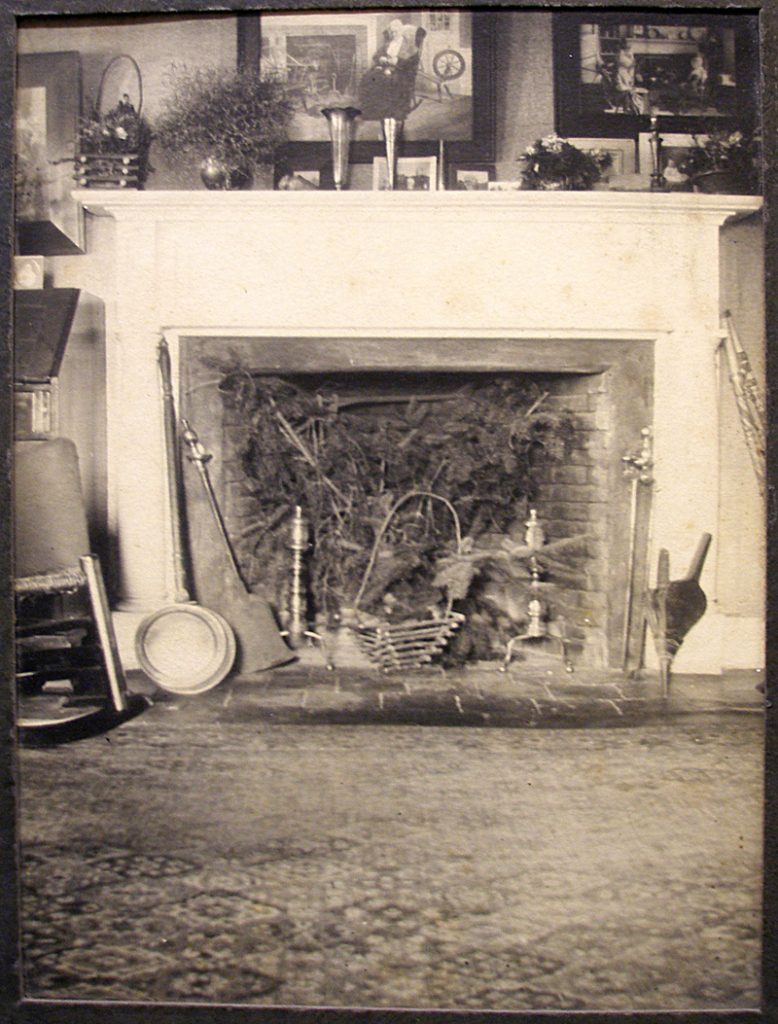
This flurry of gossip published in the papers culminated in the famous note Lizzie Borden wrote to Mrs. Cummings on 12 December 1896. Lizzie apologized for any trouble that the rumor caused the woman, and promised her that she has no idea how it started, did not blame her or the girls, and mentioned her own suffering as just one more thing she has to bear. The envelope, interestingly, was postmarked 8 PM. Also, after the name it is only addressed as “City,” and, in the lower left corner there seems to be an afterthought—written “Elm Street.” Times were simpler then—unless you were Orrin Gardner or Lizzie Borden.
In 1902, Orrin became principal of the Highland School in Fall River. He remained in that position until 1908, and was then made principal of the N.B. Borden School, which was once called the Morgan Street School. He held that position through 1914. During this time, he would visit his brother Frank, who was a Pastor at the Christian Church in Portsmouth, New Hampshire, and attend services there. In the summer of 1911, Orrin made a pilgrimage to see “The Passion Play” abroad and was invited to speak of his impressions at his brother’s church during the Lenten season. Orrin had been giving a series of lectures at his own hometown Christ Church, Swansea, and frequently conducted the service there.
Historian Pierce recalled Orrin as full of energy, very active, superintendent of the Sunday school, and considered an excellent teacher. Christ Church was in its heyday and flowering. The choir was very much respected. There would be laughter and gentle gossip that a very attractive local widow might marry Orrin Gardner. Unattached males must smile and be good-natured about such matchmaking. It was not to be.
By the time Orrin reached retirement age, his cousin Emma Borden was in failing health. In his spare time, he had been useful in acting as an agent for a state group that placed children into foster homes. He had visited Emma occasionally in Newmarket, New Hampshire, and when Lizzie Borden died on 1 June 1927, he brought Emma the news. By then Emma was bedridden after a fall. Orrin was with her when she breathed her last and arranged for her body to be shipped to George M. Wilbur’s funeral rooms, and then brought to Riverby, his home in Touisset, where her service was held. Representatives of her charitable beneficiaries asked to be present, and this was allowed. Emma Borden was interred in Oak Grove cemetery, next to the rest of her family, as the last of her line.
In Emma Borden’s will, Orrin was bequeathed $10,000 outright, the near equivalent of $115,000 today. He was also granted her furniture and furnishings, books and pictures and ornaments, not otherwise gifted. These personal possessions would have been scattered over three states—her apartment at the Minden in Providence; the house in which she died in New Hampshire; and what was left of her belongings at Maplecroft in Fall River.
Emma Borden also stipulated in her will that a fund be endowed with one-fifth of a reserved amount of money for The Andrew J. Borden Scholarships, to provide not more than $300 per year to each recipient, male and female equally, as graduates of Fall River high schools for further education. This obviously would be a program very dear to Orrin’s heart, and she also made provision that he be one whose candidate for selection would be given preference. Orrin was also awarded the position of a Trustee, able to manage the funds, and be compensated for the work involved. It would seem like a productive retirement.
Helen Pierce, however, saw an unhappy finish to the story of Orrin Gardner’s life. She recalls he came upon very hard times. He became ill and entered a nursing home in Deighton. She said he quickly died 10 April 1944, and was buried without a funeral in the family plot in the cemetery. With a full life dedicated to education, it is remarkable that Orrin Gardner did not have an obituary published on his passing.


